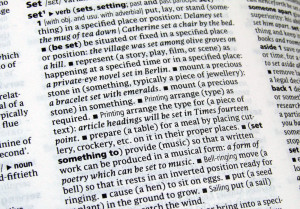Searching for the Origins of English
Yesterday the 13th of October, was English language day, and as such we’re going to have a little look at the Englishproject.org site, a website that is hoping to find all the details of historical events that have shaped the language.
The charity has already compiled their own collection of landmarks that have contributed to English, and now they are asking for contributions from anyone else; so if you have ideas about where a significant writer or speaker lived, how English arrived in a certain place, or anything else you believe is significant, you can drop them a line on the site.
Professor Bill Lucas of the English Project, stated “We are keen to know about significant individual writers and speakers; and where they live or lived, where did English arrive in a new country? Where can a social or political trend best be marked? And where were important battles fought?”
English began as a language of the Angles, Saxons and Jutes on a small island — Great Britain — and is now spoken by almost two billion people; in fact, there are twice as many people speaking English as a second language than there are native speakers, which is more than any other language.
The list was combined by the charity is stacked with one hundred different events, and was released in their book ‘A History of the English Language In 100 Places.’ In chronological order from the year 475 all the way to 2012, Some of the more eye-catching inclusions are:
- 475 – The earliest written English
- 1235 – The English language in popular song
- 1456 – The English book trade
- 1524 – The Bible in English
- 1607 – The English language in the Americas
- 1660 – Making English the language of science
- 1788 – The English language in Australia
- 1840 – The English language in New Zealand
- 1894 – English slang
- 1901 – English and the radio
- 1941 – The language of advertising
- 1969 – The language of email
- 1991 – The language of the World Wide Web
- 2006 – Twitter English
Having a quick look around their rather big and in depth website will find you a host of other resources and information; they have a page dedicated to the ‘Landmark of the Week,’ this week it’s Cantebury in 602, where they talk about Kentish English and the Roman Alphabet, and the first example of a legal document in a Germanic language. I’ve had a search around and one piece of information that jumped out was that the Oxford English Dictionary has over 600,000 headwords, which are words that begin a separate entry in a dictionary; they go on to say that word collectors claim counts of one million, and yet the vocabulary of a university-educated person is about 50,000.
Amazing really, how many words do you know? I don’t actually expect you to answer that, but did it occur to you how many other words there are available to you? Do you feel like picking up the dictionary to learn a few?


